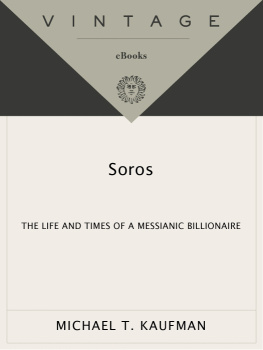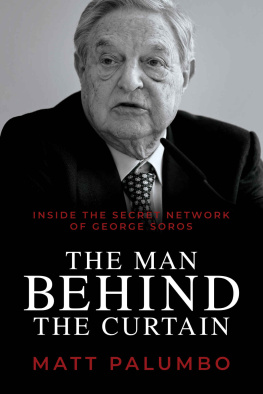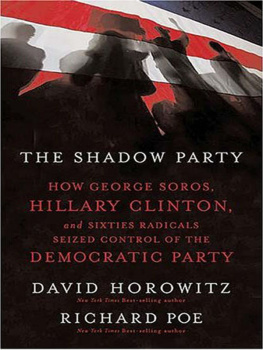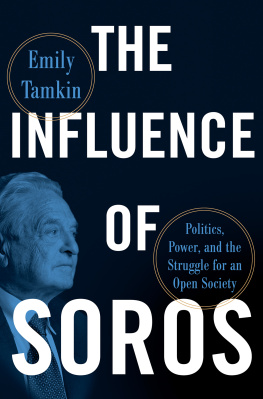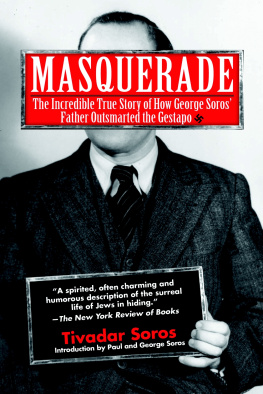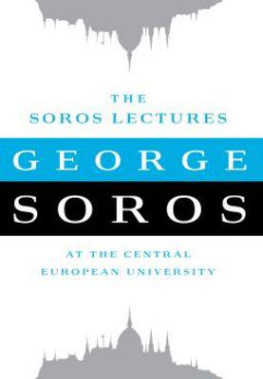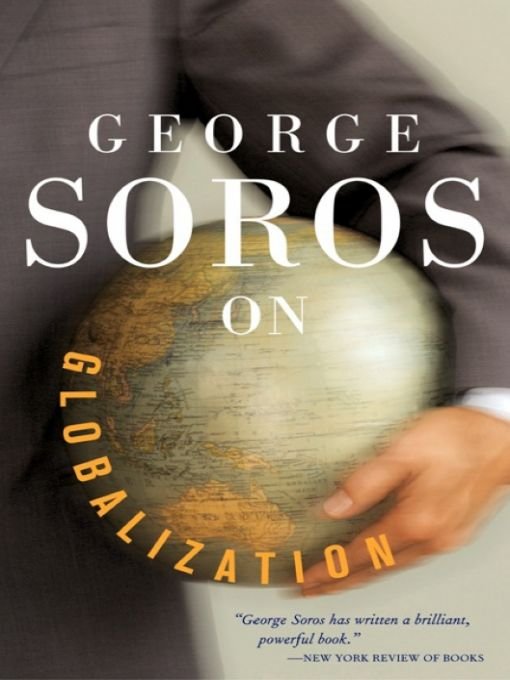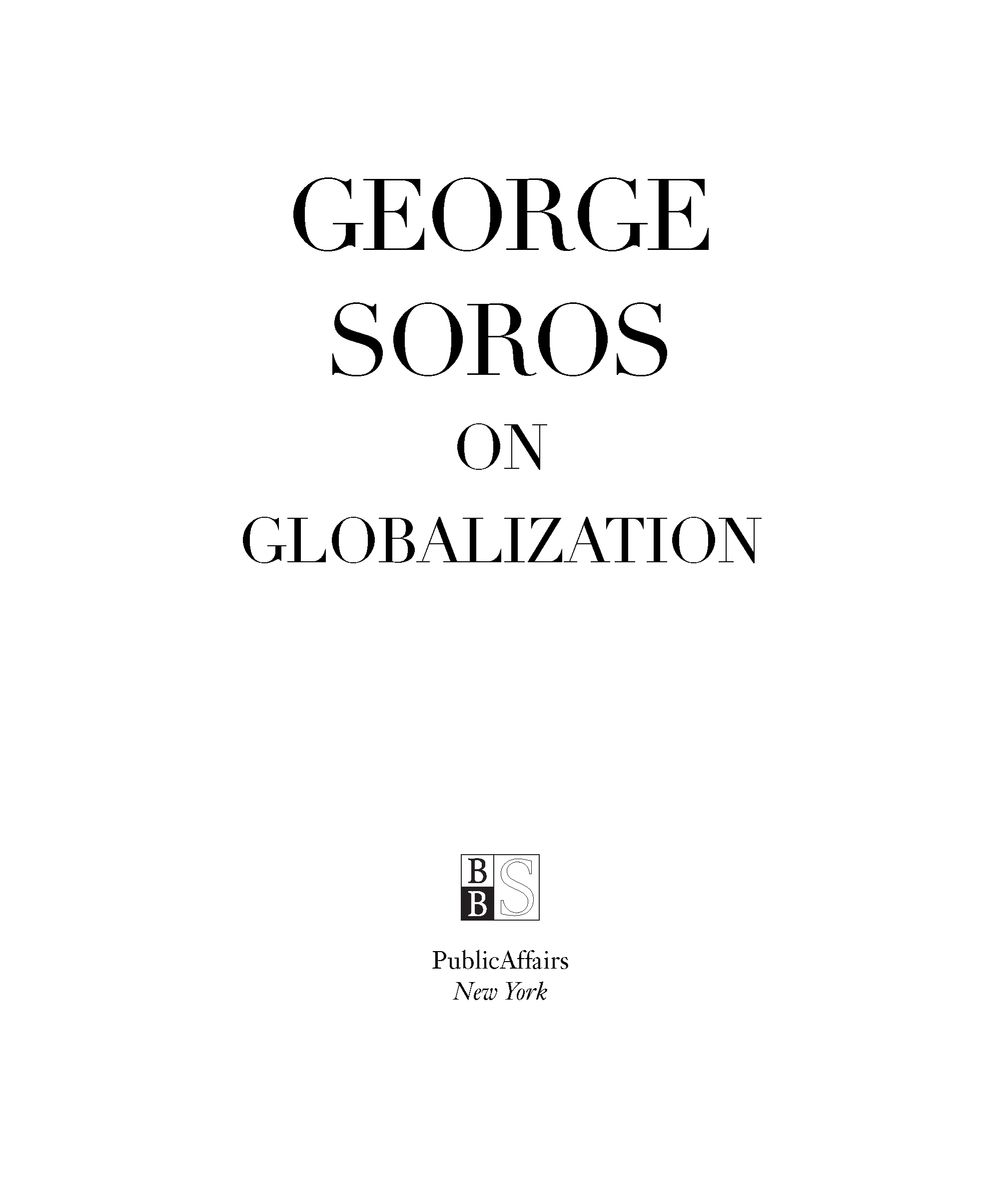Table of Contents
ALSO BY GEORGE SOROS
Open Society: Reforming Global Capitalism
The Crisis of Global Capitalism: Open Society Endangered
Soros on Soros: Staying Ahead of the Curve
Underwriting Democracy
Opening the Soviet System
The Alchemy of Finance: Reading the Mind of the Market
Preface
My goal in writing this book is not only to shed light on how global capitalism works but also to suggest ways in which it could be improved. For this purpose, I have adopted a rather narrow definition of globalization: I equate it with the free movement of capital and the increasing domination of national economies by global financial markets and multinational corporations. This approach has the advantage of narrowing the focus of discussion. I contend that globalization has been lopsided: The development of our international institutions has not kept pace with the development of international financial markets and our political arrangements have lagged behind the globalization of the economy. Based on these premises I have formulated a set of practical proposals that would make global capitalism more stable and equitable.
I was stimulated to embark on this undertaking by what I saw as an unwitting alliance between market fundamentalists on the far Right and antiglobalization activists on the far Left. They make strange bedfellows, but between them they are well on their way to downsizing or destroying the international institutions we currently have. My goal in writing this book was to form a different kind of coalition whose mission would be to reform and strengthen our international institutions and create new ones where necessary to address the social concerns that have fueled the current discontent. Admittedly, our existing international financial and trade institutions (IFTIs) have some defects; all institutions do. That is a reason to improve them, not to destroy them.
I believe I have some unusual qualifications for this project. I have been a successful practitioner in global financial markets, giving me an insiders view of how they operate. More to the point, I have been actively engaged in trying to make the world a better place. I have set up a network of foundations devoted to the concept of open society. I believe that the global capitalist system in its present form is a distortion of what ought to be a global open society. I am only one of many experts on financial markets, but my active concern with the future of humanity sets me apart from most others. I have spent most of the last five years studying the defects of globalization and have written several books and articles on the subject. My last book, Open Society: Reforming Global Capitalism, was rather weak, however, when it came to prescribing solutions. This book is meant, in part, to make up for that deficiency.
I am often told that there is some kind of contradiction between profiting from global financial markets and trying to reform them. I do not see it. I am passionately interested in improving the system that has allowed me to be successful so that it will become more enduring. My interest predates my involvement in the financial markets. Having been born a Jew in Hungary in 1930, I lived through both Nazi and Soviet occupation. I learned at an early age how important it is to your well-being and survival what kind of political regime prevails. As a student at the London School of Economics, I was greatly influenced by the philosophy of Karl Popper, author of Open Society and Its Enemies . As soon as I was successful enough as a hedge fund manager, I set up a foundation, the Open Society Fund (now Open Society Institute), to open up closed societies, help make open societies more viable and foster a critical mode of thinking. That was in 1979. At first, the foundation focused on opening up closed societies; then, after the collapse of the Soviet empire, on fostering the transition from closed to open societies; and more recently on addressing the ills of global capitalism. This book is the natural outgrowth of that engagement.
In trying to build a coalition for reforming and strengthening our IFTIs, I faced a difficulty: It is always easier to mobilize the public against something than for something. A constructive agenda must be general enough to meet peoples aspirations yet specific enough to allow a coalition to coalesce around it. Such an agenda cannot be developed by an individual on his own. Accordingly, I circulated my book in draft form among a broad range of people and asked for their reaction. I received many valuable comments and criticisms, and I incorporated those suggestions that I considered well founded in the finished product. I believe the book in its final version puts forward a constructive agenda that the public could support and the governments of the world implement. The centerpiece of the book is a proposal to use Special Drawing Rights (SDRs) for the provision of public goods on a global scale. The scheme will not cure all the ills of globalizationnothing willbut it should help to make the world a better place.
I was well along in the process of distilling a finished product when the terrorists struck on September 11, 2001. That event created a fundamentally new situation. I felt that the book as it stood then did not go far enough. It was confined to a set of proposals that I considered practical prior to September 11, but it did not spell out the vision of a global open society that has motivated me. The present moment is auspicious for gaining a hearing for that concept. It is not enough to wage war on terrorism; people also need a positive vision of a better world ahead.
September 11 has shocked the people of the United States into realizing that others may regard them very differently from the way they see themselves. They are more ready to reassess the world and the role that the United States plays in it than in normal times. This provides an unusual opportunity to rethink and reshape the world more profoundly than would have been possible prior to September 11.
Accordingly I have decided to add a conclusion to the book outlining my vision of a global open society. It differs in texture from the rest of the book. It is more a polemical tract than a considered report on the deficiencies of global capitalism; more an abstract vision than a set of practical proposals. I intend to elaborate it further in due course. More importantly, the conclusion still needs to go through the critical process to which the rest of the book has already been exposed. Indeed, it needs it more because it discusses subjects about which I know much less than I do about the global financial system.
I was of two minds about including the conclusion because my goal in writing the book was to build a broadbased consensus, and the conclusion may endanger that objective. The SDR proposal in particular will require the support of the United States to be implemented, yet my conclusion is highly critical of the Bush administrations unilateral, hegemonic approach to international affairs. In the end, I decided to put my trust in the public that I seek to mobilize. People need not agree with all my views in order to support the SDR proposal, and if the public supports it, a democratic government must respect the will of the people even if it dislikes my criticism.


